文章目录
- 为什么 ++i 比 i++ 省gas
- 测试验证
- demo1
- demo2
- 为什么 ++i 比 i++ 省gas
为什么 ++i 比 i++ 省gas
i++通常更昂贵,因为它必须增加一个值并“返回”旧值,因此可能需要在内存中保存两个数字++我在记忆中只使用过一个数字。在许多情况下,在编译器优化之后,它们可能是等效的。
测试验证
demo1
为了验证,我在Remix中设置了两个合约:一个将使用i++,一个使用++i。
// SPDX-License-Identifier: GPL-3.0
pragma solidity >=0.7.0 <0.9.0;
contract IteratorTest {
uint256 i = 999;
function increment() public {
i++;
}
function retrieve() public view returns (uint256){
return i;
}
}
i++ 测试花费gas:30324 gas
// SPDX-License-Identifier: GPL-3.0
pragma solidity >=0.7.0 <0.9.0;
contract IteratorTest2 {
uint256 i = 999;
function increment() public {
++i;
}
function retrieve() public view returns (uint256){
return i;
}
}
++i 测试花费gas:30317 gas
总结:在两个合约中执行
increment()函数。 i++ 测试花费gas:30324 gas,++i 测试花费gas:30317 gas。 ++i比 i++节省。
demo2
// SPDX-License-Identifier: GPL-3.0
pragma solidity >=0.7.0 <0.9.0;
contract IteratorTest3 {
uint256[] public arr = [1, 2, 3, 4, 5];
function find() public view returns (bool) {
for (
uint256 i = 0;
i < arr.length;
i++ /*++i*/
) {
if (arr[i] == 5) {
return true;
}
}
return false;
}
}
i++ 花费gas: 36221
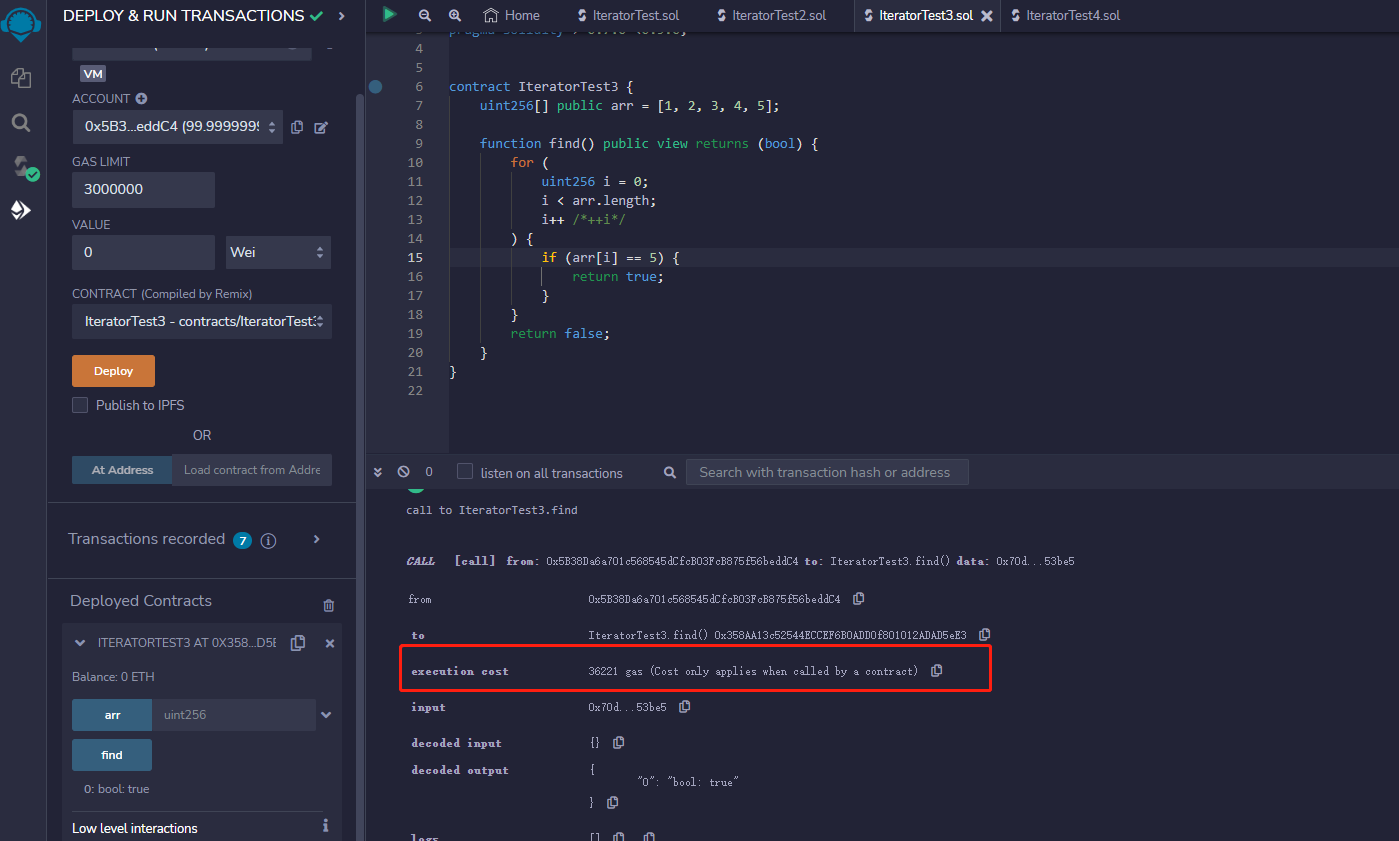 ++i花费gas:36201
++i花费gas:36201
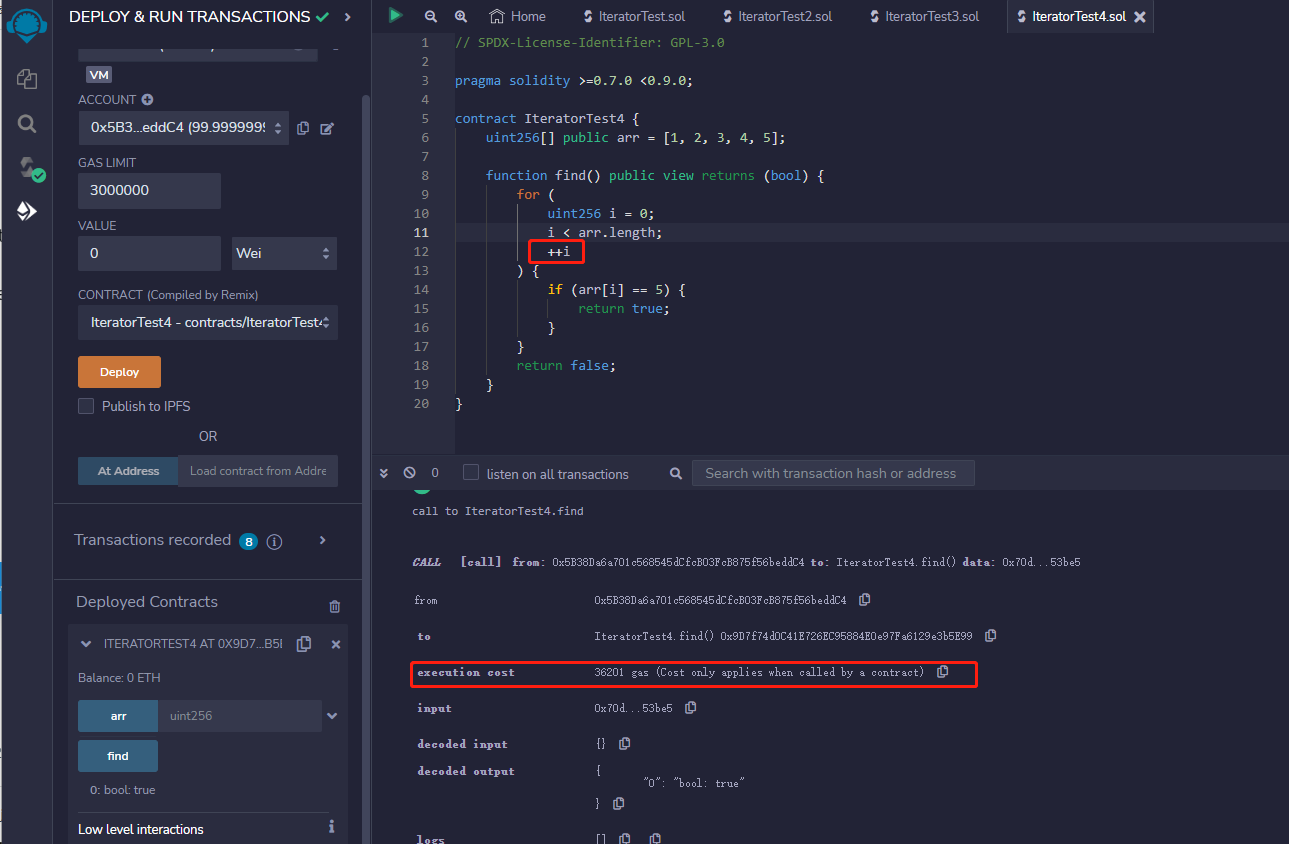
总结: i++ 花费gas: 36221,++i花费gas:36201,确实 ++i节省gas。
为什么 ++i 比 i++ 省gas
原文地址:https://twitter.com/0xCygaar/status/1607860326271438848
作者使用debugger,对两者执行区别进行了分析:
i++ does actually save the original value before incrementing. We can see this behavior when stepping through our code. Here’s what the stack looked like for both contracts after the first section executed:
具体参考作者原文~
我做的第一件事是打开Remix debugger。对于那些不熟悉debugger的人,它是一种工具,可让您了解交易执行的每个EVM OPODE。
这就是为什么要知道assembly作为智能合约开发人员的重要性。
我主要使用指令面板(左中间,未命名)和堆栈面板(左下)。这些告诉我当时正在执行什么操作码以及堆栈的状态。





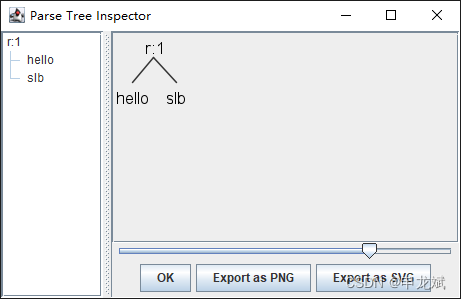


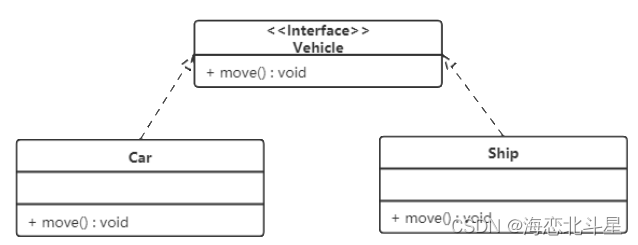

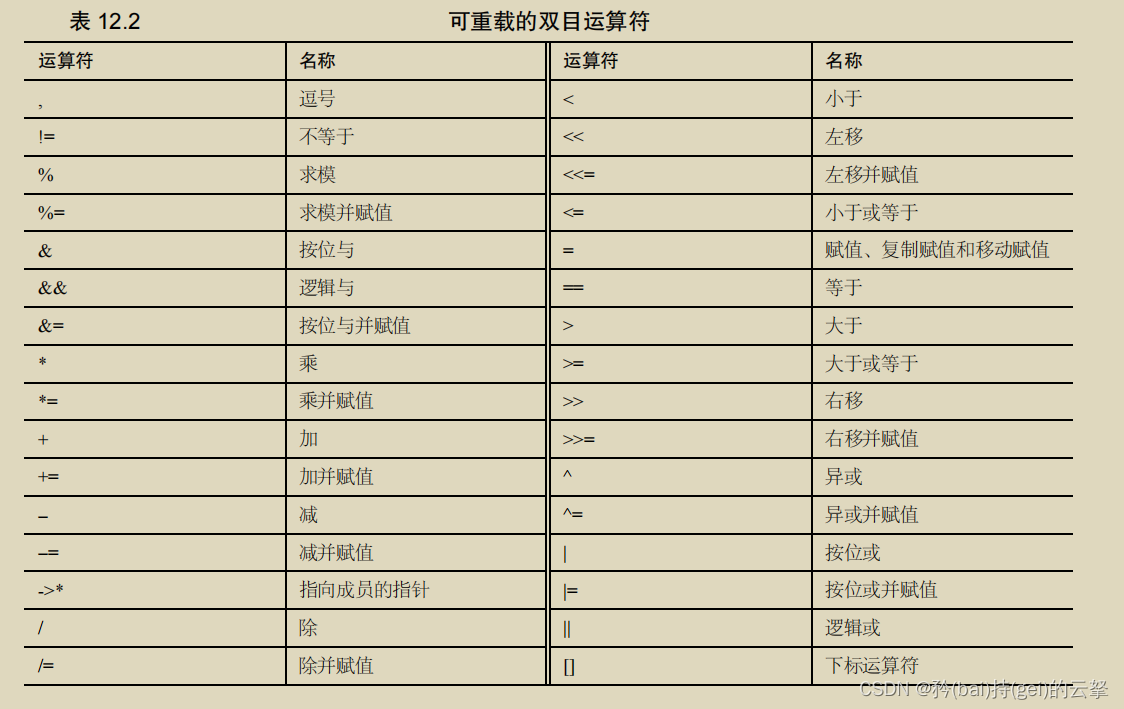

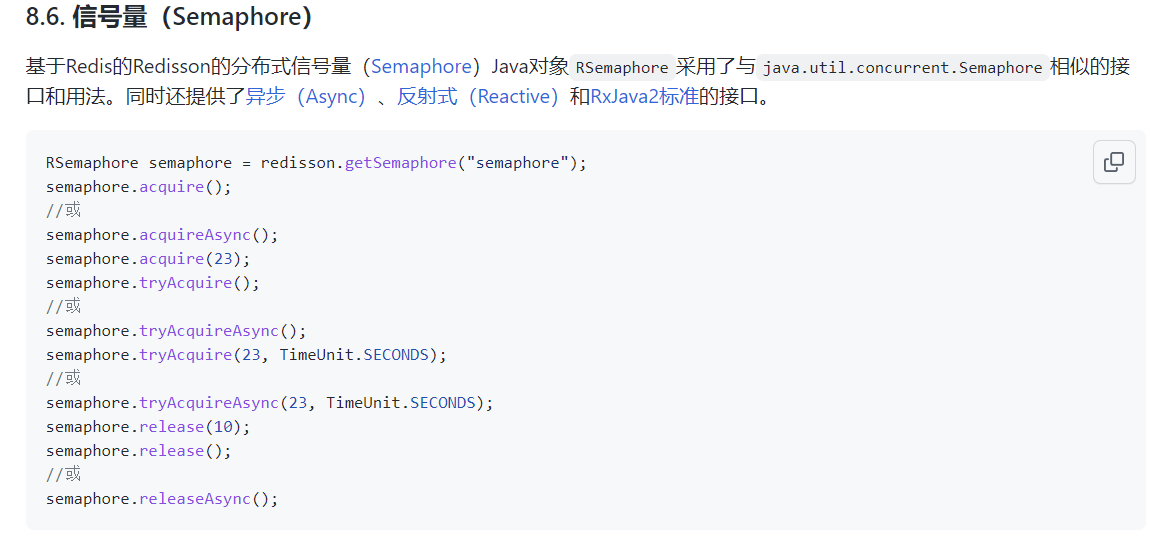



![[思考进阶]04 优秀的人,都在使用“微习惯”](https://img-blog.csdnimg.cn/51577adbd62244eb88926d9c0d294c61.png#pic_center)
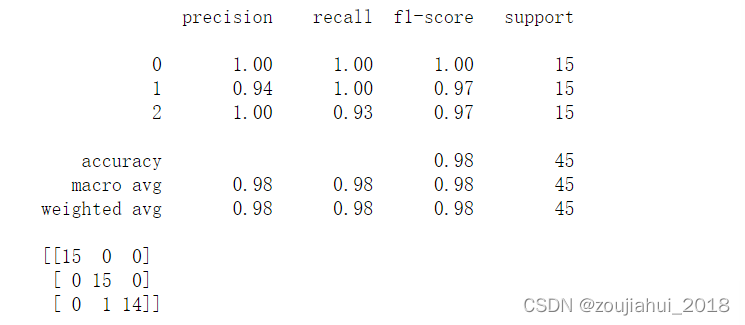

![#P13787. [NOIP2021] 报数](https://img-blog.csdnimg.cn/82b3906bd9ca4937910d512017bb5b38.png)
